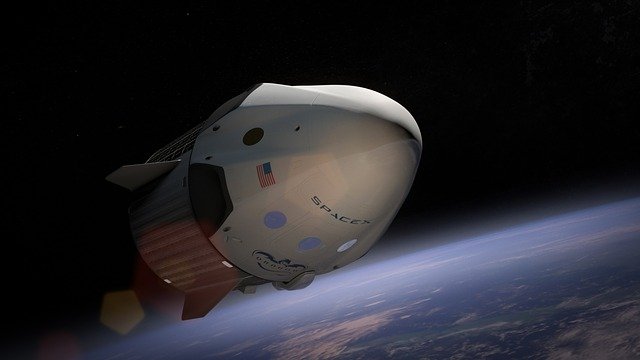Space Tourism – From Branson’s Braggadocio to Mol’s Malfeasance
For years, space has been called one of the most attractive industries for investment. In 2019 alone, private space companies received nearly $6 billion in investments.
Now companies are today undertaking the assembly and launch of not only satellites but also launch vehicles. SpaceX owner Elon Musk wants to conquer Mars, and Blue Origin CEO Jeff Bezos plans to colonize the Moon. These ventures will require a lot of money, resources, effort and, most importantly, time.
Space tourism is much more feasible in the short-term. While the industry has witnessed many false sunrises, experts say the Sun is about to shine. Analyst Caleb Williams of the consulting firm SpaceWorks has said 2019 will mark the culmination of two decades of development work on space tourism.
“If we are lucky,” Williams said a year ago, “We will see the birth of a completely new industry.” So far, however, there has been no breakthrough. At least not yet.
WHO ARE SPACE TOURISM’S LEADERS?
Virgin Galactic’s Richard Branson, who has been selling $250,000 tickets, has fueled the most interest in space tourism. Media reports estimate that from 500 to 1,000 people have already booked trips. Their spacesuits are already ready.
“Each suit will carry a passenger’s name, mission patch and the patch of that person’s country (or countries) of origin. A hidden interior pocket over the heart can hold family photos or whatever else a passenger wants to keep safe. Passengers can write their personal mission statement on a tab on the suit’s interior, too,” Virgin Galactic said.
Branson is often criticized for making over-the-top statements not supported by facts. The master of hype is not considered a serious competitor for Musk or Jeff Bezos, who also wants to send people into space.
COSMIC CON ARTISTS
Unfortunately, not all space-related startups play by the rules. Despite the immaturity of the space tourism market, at least one high-profile scandal has already erupted.
Space Expedition Corporation (SXC) in 2010 began selling tickets for “space tours.” Its leader Michiel Jan Mol was not shy about the project, announcing the creation of a space research center. He also talked about building a spaceport on the basis of the International Airport in Curacao, where he planned to build space experimentation facility to entertain tourists. After two years, SXC announced the sale of 175 tickets at a price of $95,000 for the flights of XCOR Aerospace, the developer of rocket engines and rocket plans.
XCOR soon took over the SXC, resulting in the creation of the XCOR Space Expeditions Division, which continued to sell space tickets. After the takeover, Mol remained to lead the division. In June 2017, the company announced financial difficulties and five months later went bankrupt. In total, at the time of bankruptcy, 282 tickets had sold for almost $26.8 million. The company did not reimburse the money to deceived customers.
THE FUTURE OF SPACE TOURISM
A review about space tourism would be incomplete without looking at old-timers SpaceX and Boeing. Experts expect that in 2019 companies would also begin to launch astronauts into orbit. While this has not happened, companies have already signed contracts with NASA for the delivery of astronauts to the International Space Station. SpaceX and Boeing are planning an independent organization that will offer space tours to all. The companies say it is a key step for the development of space tourism.
Market experts, meanwhile, predict a bright future for the industry.
“Space tourism has been taken much more seriously over the past several years,” says space policy analyst Laura Forczyk, founder of the consulting firm Astralytical. “But once we see humans flying on commercial rockets from the US, I think that space tourism will gain credibility, and that will be great for the industry overall.”
The rapidly developing space industry finds its application not only in the B2B sector and in applied B2C in the form of space tourism. The formula is true both for large market participants and for startups. Unfortunately, the niche also attracts obvious scammers. And only state support and control of players entering this area will help reduce the percentage of dishonest entrepreneurs. We hope space travel in the near future will become a reality for many people.

